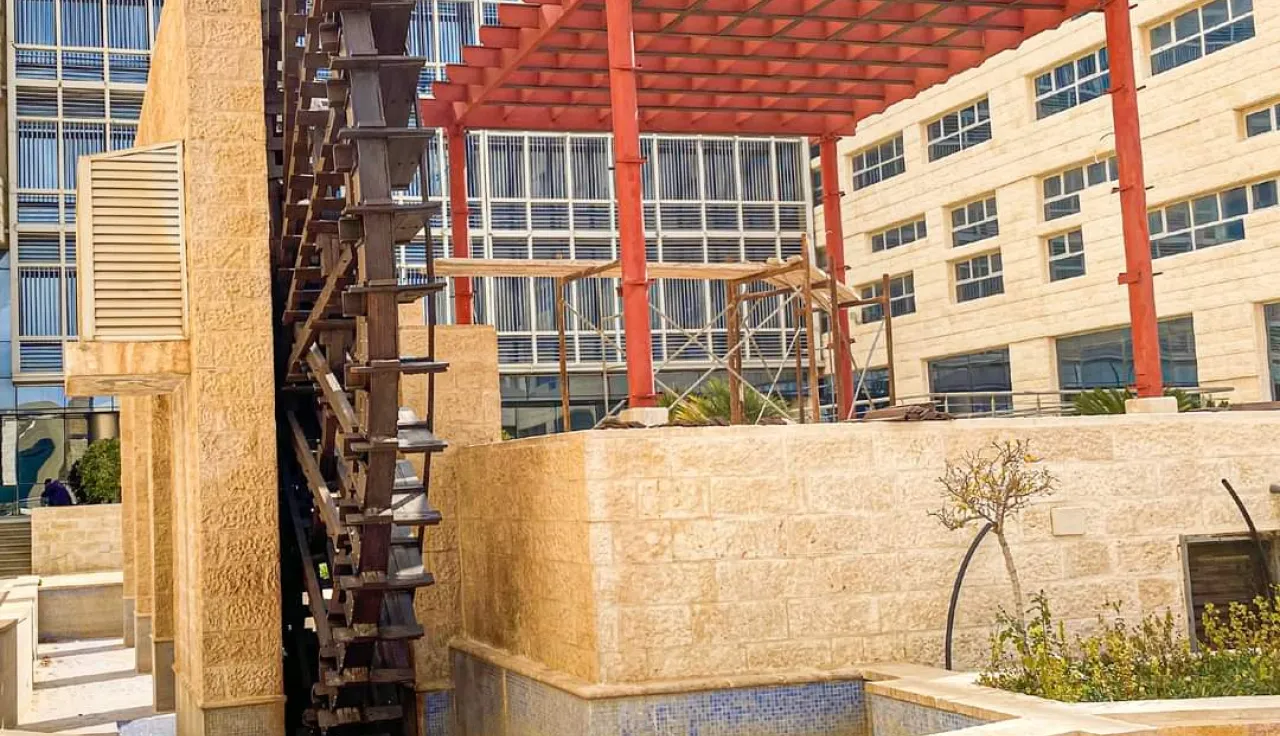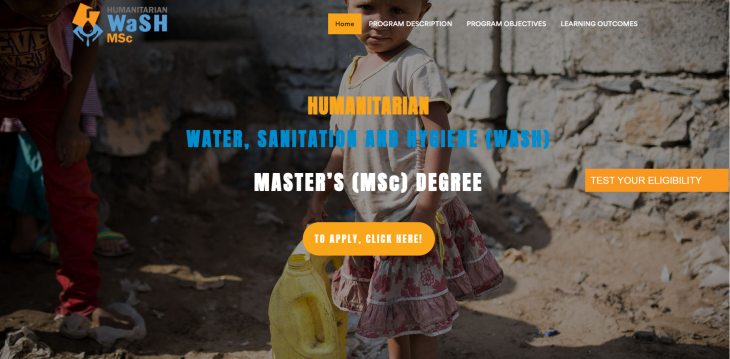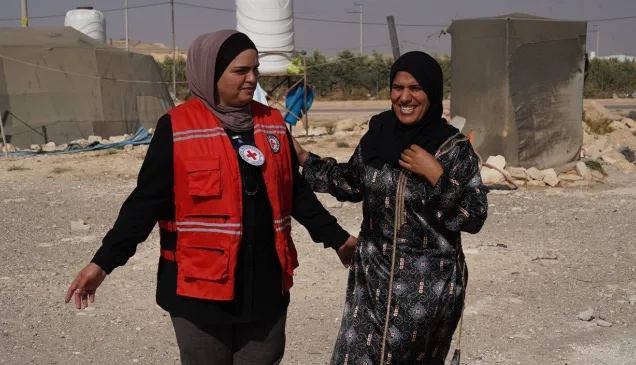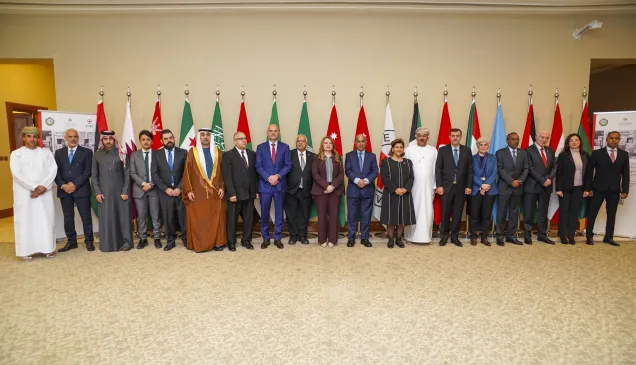First-ever WASH master’s degree programme for Middle East region

German-Jordanian University offers first Middle Eastern master’s degree programme in Water, Sanitation and Hygiene in partnership with the humanitarian sector
Initially planned for October 2020 and delayed due to the COVID-19 pandemic, the MSc program in Humanitarian Water, Sanitation, and Hygiene (WASH) at German-Jordanian University (GJU) in Amman, Jordan, finally started in February 2021. The ICRC had the pleasure of launching the course with a lecture on “Typology of crisis and WASH sector characteristics” and the case study of the “Protracted Urban Crisis in Aleppo”.
The master’s degree program is aimed at educating new WASH experts who wish to work in the humanitarian field. It attempts to do so by using a multidisciplinary approach, examining the project-cycle management, donor requirements, theory of change, humanitarian-development nexus, and many other transversal topics. It is the first-of-a-kind master’s program in the Middle East, a region where conflict often exacerbates the already existing challenges in access to water and sanitation.
The course is a realization of a two-year partnership between the ICRC, the GJU, Bioforce Institute, and Action Contre la Faim.
Dr. Munjed Alsharif, a Dean of Graduate Studies, School of Natural Resources Engineering at GJU, describes the program, how it came about and how the ICRC contributed to making it happen.
“The project partners carried out a market survey in 2018 and found a high level of interest among the humanitarian community in the Middle East region to have more qualified local staff working in the field of WASH. While this survey showed the willingness of these organizations to increase their ratio of national staff, most struggle to find competent personnel for more senior management and coordination positions.
Our survey confirmed that a university program covering these components would contribute to supporting local professionals to quickly evolve to coordination positions. These positions are considered the most difficult to fill with national staff.
Responding to this need, the German-Jordanian University – in partnership with Action Against Hunger (French NGO specializing in WASH) and Bioforce (French NGO specializing in humanitarian learning services) did the necessary groundwork, including course development, and launched the Humanitarian Water, Sanitation, and Hygiene (WASH) MSc program in the Middle East in February 2021.
During the process, we worked with many key organizations such as the United Nations, the International Committee of the Red Cross (ICRC), and other NGOs that are well-known and enjoy a high level of credibility in the field. We consulted them throughout the development of the MSc program, including their feedback and endorsement to come up with the content and mode of dissemination.

The program was initially planned to start in October 2020. How has the disruption caused by COVID-19 impacted your plans, the interest in the course, and the way it is being delivered?
Dr. Alsharif: Due to the COVID-19 pandemic, the Jordanian Ministry of Higher Education decided to switch to online learning. This directly impacted the launch of the program since all modules were developed assuming a face-to-face delivery, especially since the content has a high percentage of practical applications. Thus, the steering committee decided to postpone the launch and took that time to update and adapt the content and the mode of delivery to suit the new situation.
However, the delayed launch did not affect the students’ interest. In fact, we now have eight students, which is one more than those accepted in the first semester.
The ICRC cooperates with universities worldwide and supports them in the dissemination of international humanitarian law. The collaboration with a university and other humanitarian partners on preparing a WASH master’s degree is relatively new, and much can be learned from such an experience. What lessons have you drawn from working together with the ICRC and other humanitarian partners while preparing this master’s program?
The ICRC is a well-known and reliable employer offering career opportunities. They endorsed and participated in the workshops devoted to course development, developed many sessions, donated much essential equipment that would be used for training the students and they have already delivered the sessions that they have developed. The sessions were well-received by GJU professors and students and they all expressed their appreciation for the practical expertise shared by the ICRC.
What are your future expectations for the master’s program and for the students?
Dr. Alsharif: According to our analysis, surveys, and stakeholder feedback, we are aware that many students are keen to join the program. This is because, amid the existing training opportunities in the region, there is none that offers such a comprehensive education in humanitarian WASH subjects. No university degree specifically focuses on WASH humanitarian operational response, especially in a humanitarian context such as the Middle East.
We also predict that this degree will help Middle East professionals with higher education in WASH subjects to join the humanitarian sector, especially at more senior levels.
GJU also believes that the first batch of students will also work as ambassadors for the program and will encourage more students to join.



